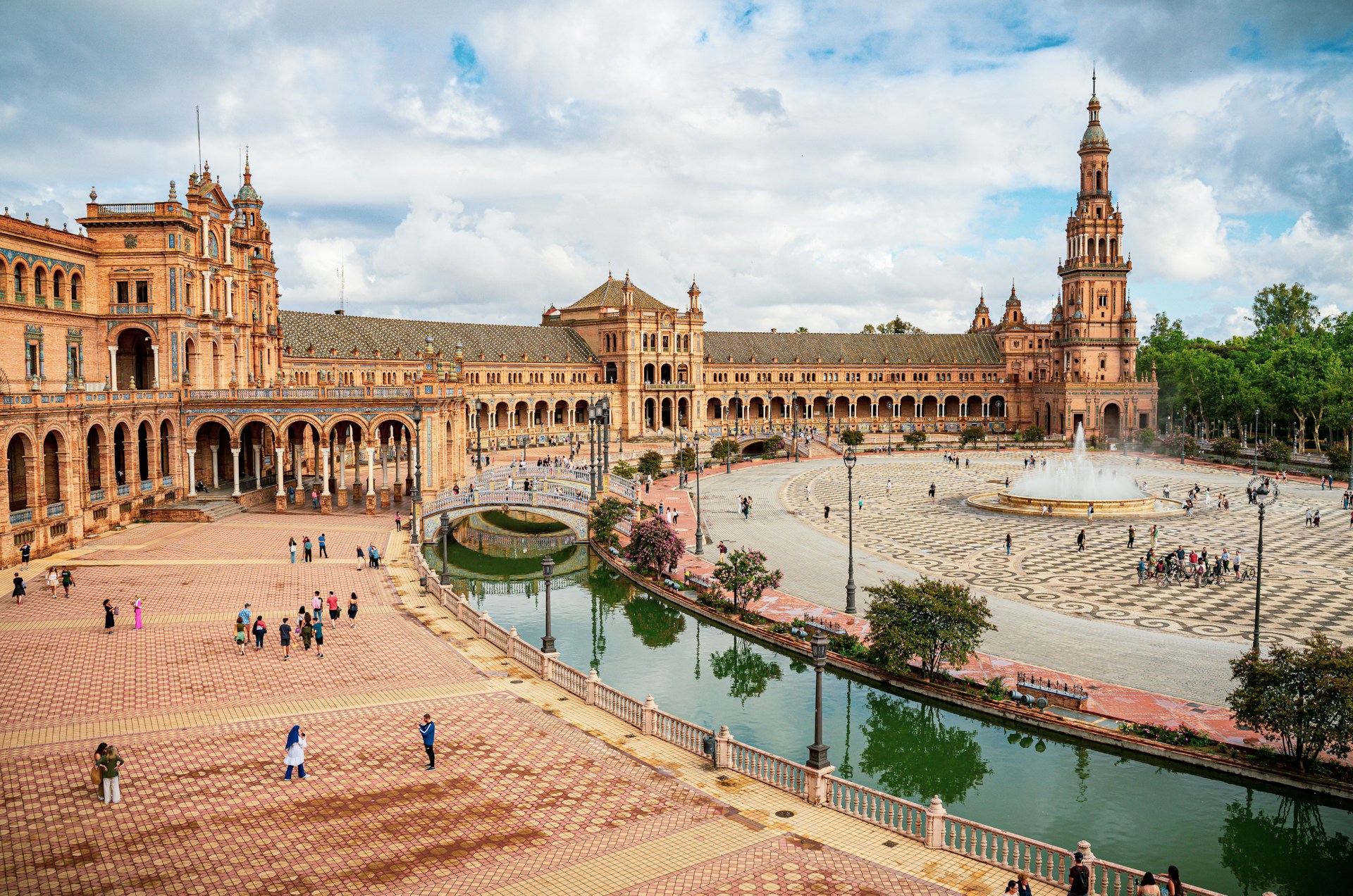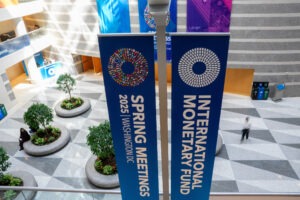This year, the fourth International Conference on Financing for Development (FfD4) is scheduled to take place from 29 June to 3 July 2025 in Seville, Spain. FfD4 marks a crucial step in the reform of the global financial architecture, addressing systemic inequalities, climate change and the debt crisis affecting many countries in the Global South. It will serve as an opportunity to assess the commitment and political will of all global actors to promote a more equitable, inclusive and transparent international economic order.
Promoted by the United Nations in partnership with multilateral and regional partners, the Seville Conference provides an opportunity to critically review development finance mechanisms nearly a decade after the adoption of the 2030 Agenda and the Paris Agreement, with a particular focus on achieving the Sustainable Development Goals (SDGs). The meeting has two objectives: on the one hand, to assess progress in implementing the main existing global frameworks – including the 2015 Addis Ababa Action Agenda – and on the other, to identify new responses in a profoundly changed international context, marked by climate crises, growing sovereign debt and increasing geopolitical instability.
The gap between ambition and reality is clear. According to United Nations estimates, the financial gap needed to achieve the SDGs by 2030 amounts to $4 trillion annually. Considering this figure, the 2024 UN SDG report shows that only 16% of the goals are currently on track, around 50% are delayed and 30% are showing signs of regression. These figures highlight the urgent need for structural reforms and renewed political and financial momentum, particularly from advanced economies, to ensure real progress towards a more sustainable and equitable global economy.
Two decades of incomplete policies for development finance
Since the 2002 Monterrey Consensus, the first comprehensive multilateral framework for development finance, the international community has recognised six core pillars to promote inclusive growth and poverty reduction: domestic resource mobilisation, attraction of foreign direct investment, promotion of international trade, financial and technical cooperation, debt sustainability and systemic coherence. These principles were subsequently reaffirmed in the 2008 Doha Declaration, adopted amid the global financial crisis, which underscored the importance of safeguarding Official Development Assistance (ODA) flows and strengthening the role of international financial institutions.
However, the international response has not been up to the challenge. The financial crisis led to a slowdown in ODA to the most vulnerable countries, while promised reforms, especially those related to the governance of the International Monetary Fund (IMF) and the World Bank, remain incomplete. A decade after the third Conference on Financing for Development (FfD3), the Addis Ababa Action Agenda (2015) attempted to broaden the scope of development finance to include new priorities such as climate finance, South-South cooperation, technological innovation and the fight against illicit financial flows. New tools such as blended finance emerged, but access to credit remains structurally unequal between high and low-income countries.
The development cooperation crisis in a world in polycrisis
The COVID-19 pandemic has further undermined progress toward the SDGs, exacerbating global inequalities and fuelling a new debt crisis. According to UNCTAD, in 2023, the ratio of external debt service to exports in the least developed countries reached 25.4%, up from 15.9% the previous year– well above the commonly accepted sustainability threshold. In a context of high interest rates, limited access to financial markets, falling exports and tax revenues, more than 3.3 billion people now live in countries that spend more on debt interest than on education or healthcare.
This situation must be understood within an unstable global geopolitical framework, marked by new and old protracted conflicts, as well as geopolitical and geoeconomic tensions that increasingly risk escalating into trade wars, with ripple effects across global supply chains – including essential goods – and progressively exposing the vulnerabilities of interdependence. At the same time, the climate crisis is disproportionately affecting communities in the Global South (and in particular the African continent), both due to physical and environmental factors and to the limited availability of tools and resources to cope with catastrophic events and climate change impacts. As a result, inequalities between and within countries are widening.
In this context, the failure to undergo a green transition in many emerging economies (also understood as a failure to integrate climate change impacts in development planning) risks becoming an additional driver of fragility. It can lead to a worsening of socio-economic conditions, fuelling social unrest and political instability, and exacerbating the root causes of migration flows, both directly and indirectly. In this context, the climate crisis can no longer be treated as a sectoral issue: it has cross-cutting impacts on food security, governance, health, economic development, social cohesion and also on political stability and security. As a result, integrating the climate-peace-security nexus and accounting for climate change impacts in all development cooperation policies is now essential. This approach is also relevant for planning “green reconstruction” in conflict zones, but is equally important in fragile or at-risk contexts, even beyond war zones.
The stalemate of multilateral governance
In this context, existing multilateral responses have proven inadequate. The G20 Common Framework for debt restructuring has produced limited and delayed outcomes. The African Union Conference on Debt (Lomé, May 2025) renewed calls for concrete proposals: a substantive revision of the G20 Common Framework, greater access to concessional finance, use of innovative instruments and the creation of a legal international mechanism for orderly debt restructuring. The need for greater transparency, tax justice and debt cancellation for the most vulnerable countries was also reiterated, in order to free up resources for climate adaptation and productive investment.
To make matters worse, there has also been a decline in ODA, even from historically key donors such as the United States, which until recently contributed around 30% of global aid and over a third of humanitarian assistance. At the start of his second term, US President Donald Trump dismantled the US Agency for International Development (USAID) and terminated over 5,000 development aid programmes worth more than $75 billion. According to an analysis conducted by Refugees International, nearly all USAID grants focused on climate issues have been cancelled. In 2023, obligations for foreign aid amounted to $79 billion, of which more than $42 billion was managed by USAID. Trump also scaled back the role of the US within the UN framework, announcing, among other things, a renewed withdrawal from the Paris Agreement (as he did in 2017) and Washington’s withdrawal from the World Health Organization (WHO).
The United Nations system itself, 80 years after its founding, is facing serious difficulties. Amid a severe liquidity crisis, the UN is discussing staff cuts, agency mergers and structural streamlining. But rather than “downsizing”, what is needed is a revival of multilateral governance, capable of strengthening synergies between the development, finance and climate agendas, reaffirming the UN’s role as an inclusive, legitimate and representative platform for guaranteeing global public goods in a fragmented, multipolar world.
The difficult public-private balance
Within this landscape, the cooperation policies of global actors – such as the European Union and its Member States, including Italy – are increasingly relying on the private sector to mobilise funds and bridge the financing gap. This is a particularly sensitive development, given the need to ensure that the standards and objectives for development cooperation are maintained, alongside the involvement of specific resources and interests. In fact, the entry of the private sector introduces profit, returns and bankability considerations which must respect and support the objectives of cooperation.
According to numerous independent studies and assessments, for example, blended finance projects, have so far been concentrated in a few middle-income countries, excluding the most vulnerable. Private incentives have not aligned with public priorities and the additional impact remains insufficiently demonstrated.
Ten years after the narrative of the shift “from billions to trillions” in involving the private sector in development finance, even the World Bank has acknowledged that results have fallen short of expectations, especially in high-risk contexts and where strong regulatory frameworks are lacking.
Towards the Seville Conference on Financing for Development – ongoing negotiations
The preparatory document for the Seville Conference is currently under negotiation among Member States, regional groups and multilateral actors. While reaffirming commitments made in Monterrey, Doha and Addis Ababa, the text must contend with a fundamentally altered geopolitical and macroeconomic context, marked by the convergence of systemic crises – climate, social and financial.
Among the topics under discussion is the strengthening of representation for developing countries in international financial institutions, starting with the IMF and the World Bank. Proposals range from revising voting systems to expanding concessional financing instruments, with the aim of making them more inclusive and aligned with the SDGs. There is also discussion of greater mobilisation of domestic resources through more progressive tax systems, international cooperation against illicit financial flows and strengthening the role of public development banks. However, differences between negotiating blocs remain, particularly on the additionality of ODA, the binding nature of commitments and the governance of climate resources.
On the debt front, some countries in the Global South are calling for faster, more transparent and more predictable restructuring mechanisms, including the establishment of a multilateral framework under the auspices of the United Nations. Many developed countries oppose this proposal, preferring more flexible solutions within the context of the G20 Common Framework, whose effectiveness, however, remains widely debated.
Climate finance represents another particularly sensitive issue. Developing countries are demanding new, public and additional funds that are not subject to conditionalities, along with more direct and simplified access to multilateral funds. Developed countries, while recognising the urgency of climate adaptation, tend to promote the catalytic role of the private sector. Tensions also rise in discussions on unilateral initiatives, such as unilateral environmental measures (one example is the European Union’s Carbon Border Adjustment Mechanism- CBAM), which are perceived as barriers to trade and industrial sovereignty.
Finally, in the field of global governance, developing countries are calling for greater representation on the boards of international financial institutions. Developed countries, while open to gradual reforms, continue to defend the centrality of the current multilateral system, emphasising the need to safeguard global financial stability.
Overall, the negotiations highlight the deep asymmetries that still characterise the international economic system today. While there is some consensus around general objectives, deep divisions remain on how to achieve them, particularly on structural issues such as debt, climate finance and global governance reform. The outcome of the FfD4 in Seville will depend on the ability of participants to overcome these divisions and build a shared agenda that truly puts the priorities of the most vulnerable countries at the centre, followed by effective implementation.
The Sevilla Platform for Action, launched ahead of FfD4, represents an additional strategic space to advance the development finance agenda beyond the official negotiations. This platform aims to mobilise alliances and coalitions among “willing” countries and other stakeholders to implement concrete actions, with the goal of addressing shared challenges and accelerating progress towards sustainable development, such as those presented by Spain during the World Bank’s Spring Meetings held last April in Washington.
Reviving multilateralism, with responsibility and vision
In an era marked by increasing geopolitical fragmentation and the erosion of international solidarity, this conference represents a critical test for the resilience of multilateralism. Although imperfect, the United Nations negotiation space remains the only truly inclusive forum where all countries, regardless of economic power, geopolitical weight or regional affiliation, can come together to address global challenges that no nation can face alone.
For this reason, Europe, and Italy in particular, have a responsibility and the potential to contribute constructively by promoting a transformative agenda capable of balancing ambition with shared responsibility. Italy can strengthen its global role through a coherent and strategic alignment between the Mattei Plan for Africa, the Rome Process (launched with the 2023 International Conference on Development and Migration), the Global Gateway and the multilateral goals of the FfD4. This involves fostering equitable partnerships and investments that can catalyse sustainable growth and create value chains in partner countries, especially in Africa and the broader Mediterranean, thereby safeguarding common strategic interests from a geopolitical and geoeconomic perspective.
Italy therefore has the potential to act as a strategic bridge between Europe and Africa and as a catalyst for greater EU visibility and coherence on these issues. This role has already been recognised at the European level through the declared alignment between the Mattei Plan and the Global Gateway initiative, and it may be further consolidated during the joint summit scheduled to take place in Rome on 20 June 2025.
If well directed, development finance can become the cornerstone of a new, more resilient economic order, one capable of combining decarbonisation, stability and global justice, with long-term benefits for all parties involved.
Photo by Taisia Karaseva








